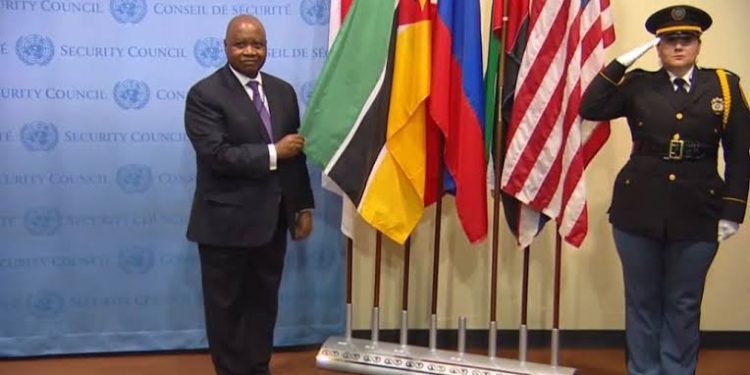By Oyintari Ben
On Tuesday, Mozambique, Ecuador, Japan, Malta, and Switzerland were formally welcomed into the United Nations Security Council and assumed their two-year seats that they had gained without opposition in June.
The ambassadors of the five nations installed their national flags alongside those of other members outside the council rooms on Tuesday, continuing a custom that Kazakhstan established in 2018.
As his nation marked its first-ever tenure on the UN’s most powerful council, Mozambican Ambassador Pedro Comissário Afonso termed it “a historic date.”
The permanent members of the group are China, France, Russia, the United Kingdom, and the United States, all of which have veto power. The General Assembly of 193 nations elects its additional 10 members to staggered, two-year mandates. They are distributed based on world regions.
Gaining a council seat is regarded by many nations as a notable diplomatic achievement that can increase a country’s worldwide profile and provide tiny nations a stronger voice than they might otherwise have in the important international peace and security problems of the day.
The council examines subjects with broad thematic appeal, such as terrorism and arms control, while also deploying peacekeeping missions, authorizing penalties, and occasionally speaking out on disputes and flashpoints. While many items are always on the agenda, council members can also use this as an opportunity to draw attention to new issues or subjects that particularly interest them.



































